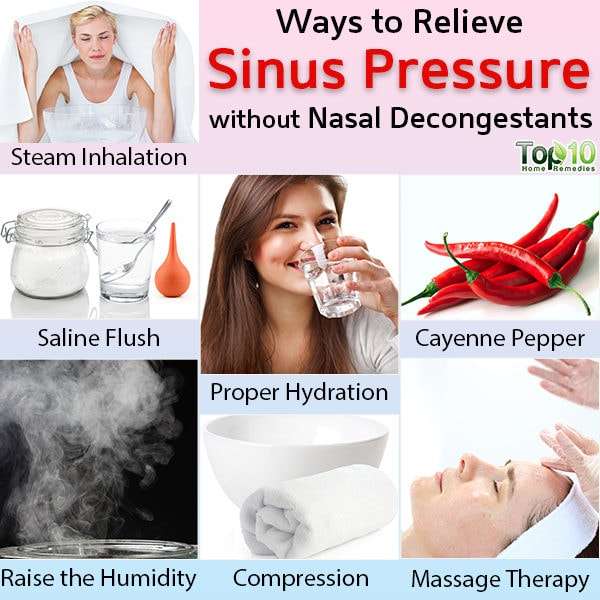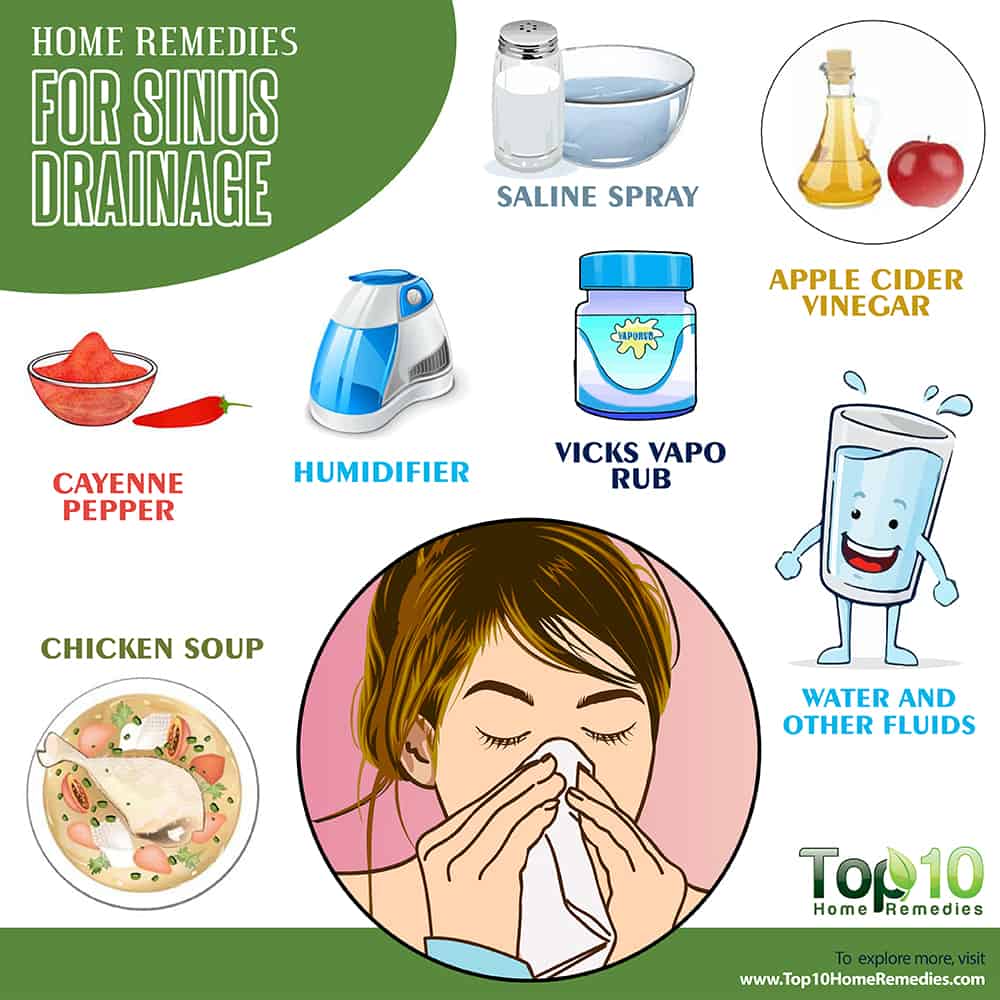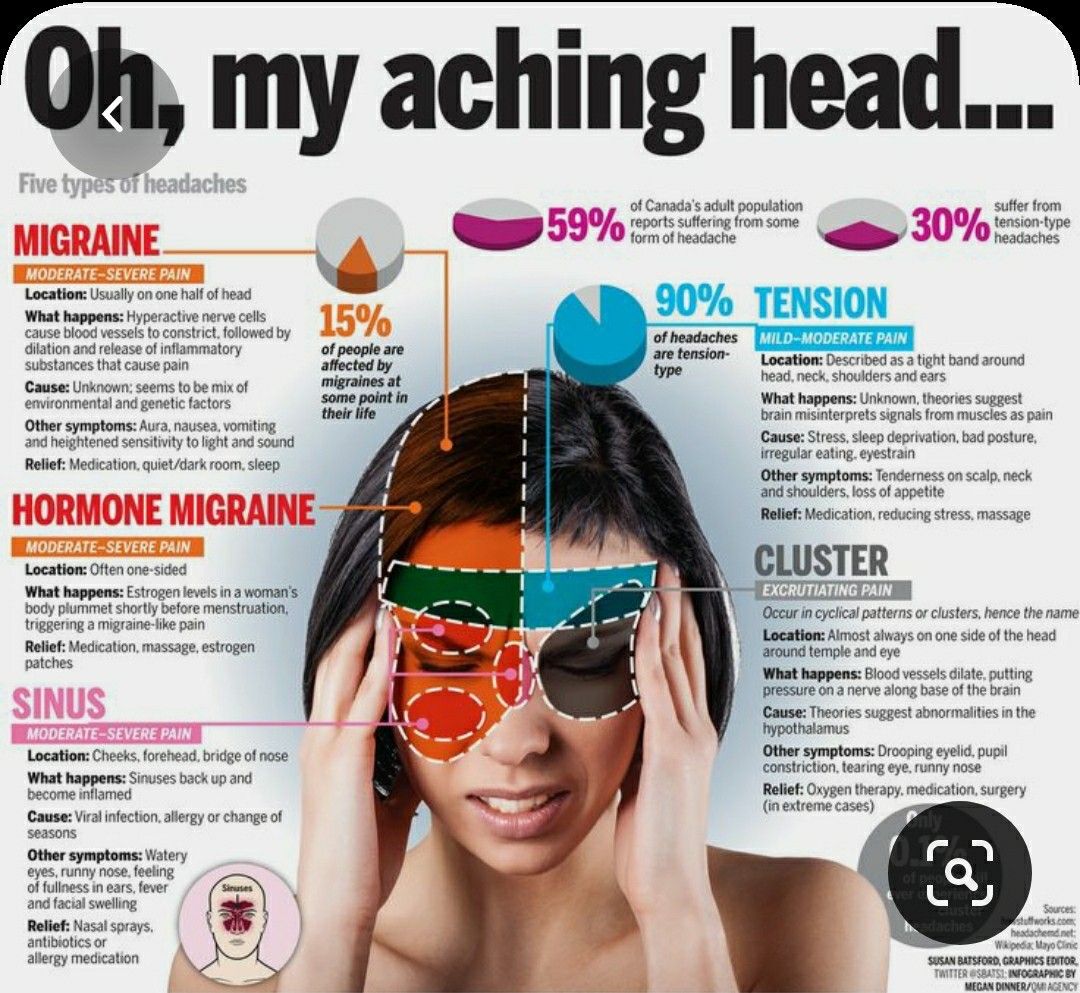Apply A Warm Compress
Applying a warm towel over your forehead and nose can help to reduce swelling and inflammation in your sinus passages. Its also a simple home remedy that you can use before you go to bed.
Heat from the warm towel helps to open up your nasal passages to reduce swelling and hence open up your nasal passageway. This will also help to loosen mucus secretion and aid in mucus flow.
Here are some simple steps on how you can apply a warm compress to provide sinus headache relief:
- Fill up a bowl with water thats warmer than body temperature. Ensure that its not scalding
- Soak the towel in the water and wring out excess water
- Fold the towel into a square and apply it over your forehead and nose
- Hold the towel in position and place it in contact with your skin for up to 20 minutes each time
Alternatively, you can make a warm compress through the following method:
- Soak two towels in water and squeeze out excess water
- Put one towel in a ziplock bag and leave the bag open
- Microwave the bag for 2 minutes
- Remove the bag from the microwave and seal it. Be careful as the bag will be hot to touch
- Wrap the other towel around the bag.
- Apply the heating pad to your forehead for about 20 minutes
What Are Some Options For Sinus Headache Treatment
You can try some at-home lifestyle remedies, including drinking more fluids, using a humidifier or vaporizer to moisten the air, and using a saltwater nasal spray. You may also want to try applying a warm, wet towel to your face to help provide some relief.
In addition, the following are some common types of sinus headache treatment:
- Antihistamines These can help if your sinus headaches are caused by allergies, since they reduce or block histamines and help reduce inflammation and swelling. They are available over-the-counter and also by prescription and come in tablet or nasal spray form.
- These oral or nasal medications can help reduce the amount of swelling and mucus in your nasal passages. They shouldnt be used in the long-term, however.
- Nasal steroid sprays These are available by prescription or over the counter and can help reduce pain and congestion.
- Antibiotics These can be used if your doctor thinks your sinusitis is caused by a bacterial infection. Most infections, however, are viral, and if this is the case, antibiotics wont help.
- Pain medication Medications such as ibuprofen, acetaminophen, or naproxen sodium can be used.
If medications dont improve your symptoms, your doctor may recommend surgery depending on the exact cause of your sinusitis and sinus headaches. The goal of surgery is to correct the underlying issue to provide long-term relief.
Surgical options can include the following:
Solutions For Dry Air
Dry air can irritate your sinuses, so ensuring it isn’t too dry can be helpful. You can use a humidifier or vaporizer to increase the humidity in your home. Other ways to benefit from using water include soaking a towel in warm water and holding it over your face for a few minutes. You can also use a saline solution nasal spray for the same purpose.
Read Also: How Can You Cure A Sinus Infection
Others Ways Of Avoiding And Minimizing Sinus Problems
Except those best sinus medicines mentioned above, there are many other effective home remedies that help you alleviate sinus discomforts.
Where Are The Sinuses Located

The sinuses are named according to their location in the skull bones:
- The frontal sinuses are located over the forehead, above the eyes on both sides.
- The maxillary sinuses are located over the cheek area, in the bone known as the maxilla, located under the eyes on both sides of the face.
- The ethmoid sinuses are located in the bone that divides the eyes and nose.
- The sphenoid sinuses are located in the sphenoid bone at the center of the skull, behind the eyes.
The sinuses are lined by mucous membranes that secrete fluid and are connected to the nasal cavity by small channels or ducts. The sinuses are sometimes collectively referred to as the paranasal sinuses because of their proximity to the nose.
Inflammation due to any cause can cause a buildup of fluid and increased sinus pressure, causing the typical symptoms of a sinus headache.
Don’t Miss: Walk In Clinic Sinus Infection
Tips To Help You Get Relief From Your Head Cold
Oh, your aching head! If youâre suffering from unbearable nasal congestion and headache, you probably have a head cold. The reason youâre so stuffed up? When you have a head cold, the membranes lining your nasal passages become swollen and produce excess mucus to flush out whatever is causing the irritation, whether itâs a virus or an allergen. You might experience pain in your forehead, under your eyes or in your upper teeth.
The key to getting rid of a head cold is to reduce sinus swelling and help mucus drain from your sinuses. Although it might seem counterintuitive, keeping your nasal passages moist is the best way to clear out congestionâdry sinuses will only result in further irritation.
Try these simple tips to clear up a head cold and help relieve headache and sinus pressure.
Since breathing in dry air will dry out your sinuses, itâs best to add moisture back into your environment by using a cool-mist humidifier or steam vaporizer. You can also try breathing in steam from a hot shower. Doing so can help soothe the irritated membranes lining your nasal passages.
A great way to ease a headache and sinus pressure is to place a warm compress on your forehead and nose. If you donât have a compress, try moistening a washcloth with warm water and applying it to your face several times a day. This will help relieve nasal congestion and relieve your head cold symptoms.
Which Sinus Headache Medicine Should I Use
by Dr. Paul Young MD | Sep 30, 2018 | Sinus
If you notice pain or pressure behind your eyes around your sinuses, you may be suffering from a sinus headache. Frequent sinus headaches are certainly a cause for concern, and if you find yourself constantly congested, you should visit an ENT to discover the real root of the problem.
However, in the meantime, you can turn to over-the-counter drugs for a bit of temporary relief. Below, well discuss the three common types of sinus headache medicine and how they can help.
You May Like: Good Things For Sinus Infections
How Do Doctors Treat A Sinus Headache
Doctors usually recommend starting with an over-the-counter decongestant and pain reliever. Nasal irrigation also can help. The procedure involves slowly pouring a saline solution into one nostril and allowing it to flow through the nasal cavity and out the other nostril. Nasal irrigation can help wash out mucus and drain some of your congestion.
If these methods do not make you feel better within a few days with, your doctor may prescribe an antibiotic or nasal steroid to treat the underlying infection. Medical practitioners do their best to avoid unnecessarily prescribing steroids to prevent antimicrobial resistance.
Treatments From Your Gp
See your GP if your symptoms are severe, dont start to improve within 7 to 10 days, or are getting worse. They may recommend additional treatment with corticosteroid drops or sprays, or antibiotics.
If these treatments dont help, you GP may refer you to an ear, nose and throat specialist for an assessment and to discuss whether surgery is a suitable option.
Read Also: Sinus Infection On One Side Only
Don’t Miss: Best Medicine For Sinus Congestion And Sneezing
Why Do I Have A Headache That Wont Go Away
First things first: If your headache wont go away, you need to figure out if its a sinus headache that wont go away or something else. Sinus headaches are caused by a buildup of pressure in sinus cavities that have become inflamed and are blocking regular mucus drainage.
Sinus headaches are often accompanied by the following symptoms:
- Feeling of pressure and/or throbbing around your sinuses
- Increased pain upon bending over
- Toothache in your upper teeth
Many of these symptoms, including congestion and increased pain upon bending over, can also be found in patients struggling with migraines. However, migraines are unlikely to last more than a few hours, whereas untreated sinus headaches can last for days at a time.
For more information about what might be behind your latest sinus headache, reference these additional posts:
You May Like: Aleve Cold And Sinus Medicine
Differentiate Between Sinus Headache And Migraine Headache
Many people who assume they are having sinus pain due to sinus pressure are actually having a migraine headache. Migraine pain can involve the same nerves as the sinus cavities and is frequently accompanied by nasal congestion, nausea, and aggravation by bright light. “If sinus pain is caused by a migraine, the best natural treatment is lying down in a dark, quiet room,” advises Das.
You May Like: What Medication Used For Sinus Infection
Relief For Sinus Pain
For effective relief, choose your sinus headache relief based on what you need. You can find combination packs of both day time and night time relief to help you get better rest and feel good throughout the day. If you dont have any trouble sleeping, choose a day time sinus relief product. There are formulas for severe colds and coughs as well as different flavors of liquid medicines to choose from.
You May Like: Can A Sinus Infection Make Your Teeth Hurt
What Are Sinuses And Sinus Headaches

Sinuses are air-filled cavities located in the forehead, cheekbones, and behind the bridge of the nose. The sinuses produce a thin mucus that drains out of the channels of the nose. When a sinus becomes inflamed, usually as the result of allergies or an infection, the inflammation will prevent the outflow of mucus and cause a pain similar to that of a headache.
You May Like: Does Amoxicillin Help With Sinus Infection
When To See Your Doctor For Nasal Congestion
See your doctor for nasal congestion if your symptoms last more than ten days, dont respond to over the counter treatment and lifestyle changes, your nasal discharge is yellow or green, or if you experience a fever.
A fever is an indicator that your symptoms are a result of bacterial infection, which will require prescribed antibiotics.
Take As Directed And Heed To Warning Labels
Regardless of the OTC pain reliever you choose to take, its important you only take the instructed dosage. Too much medicine can lead to medication overuse or rebound headaches.
Find Pressure Headache Relief Through Shopping Online at SpotRx
Tempe, AZ residents suffering from a pressure headache can find relief quickly at SpotRx. We offer free two-hour delivery in zip codes 85281 and 85282 and lower prices on your OTC medications. To learn more, please visit our website today!
SpotRx blogs are for informational purposes only. They are not written by medical professionals and should not be used to treat or diagnose any new or existing conditions. Contact your physician or qualified medical health provider with any concerns you may have regarding a medical condition.
Don’t Miss: Does Advil Cold And Sinus Help With Cough
Remedies For Sinus Headaches
Have questions? Use our contact form to get in touch with us today! Contact Us
Sinus headaches are caused by blocked sinuses, giving you pain and pressure around your sinuses, including between your eyes and above your nose. The pain can get worse when you move and the headache usually comes with other symptoms too, such as a stuffy nose or a sore throat. Experiencing a sinus headache can be tough, but there are remedies that can help you to deal with the problem.
Dealing with the pain youre experiencing is important, but it can also be necessary to consider treatments for the underlying cause of your sinus headaches too. An ear, nose and throat doctor might prescribe certain medications or suggest treatments that you can try at home.
What Is The Best Pain Relief For Sinusitis
Sinusitis is the medical term for inflamed nasal passages and is treated differently based on the frequency and severity of swelling.
Acute viral sinusitis occurs occasionally and generally clears itself within a week. During this time, you can manage symptoms with pain relievers.
Chronic sinusitis occurs more frequently and lasts longer. While symptoms can be managed with OTC medication or antibiotics for bacterial infections. Chronic sinusitis may require intervention from an ENT.
Recommended Reading: Can You Take Advil Cold And Sinus With Allergy Medicine
Also Check: Does Vitamin C Help With Sinus Infections
Nasal Saline Sprays: Non
Nasal saline is an invaluable addition to the list of over-the-counter medications. It is ideal for all types of nasal problems. The added moisture produced by the saline reduces thick secretions and assists in the removal of infectious agents. There is no risk of becoming addicted to nasal saline. It should be applied as a mist to the nose up to six times per day. Nasal saline can also be made at home: contact your otolaryngologist for details.
Also Check: What To Use For Sinus Infection
Is Postnasal Drip Serious
Postnasal drip is not considered a serious condition. Some people may experience long-lasting postnasal drip because of allergies, and though its uncomfortable to live with, its symptoms are manageable. Postnasal drip has been known to cause further health problems like sinus and ear infections, so its important to see a doctor if your symptoms last more than 10 days, if you have a fever, or if you have blood and/or colored discharge when you blow your nose.
Also Check: How To Get Rid Of A Bad Sinus Infection
Read Also: Sinus Pain Behind Eye Treatment
Sinus Headache: Signs Symptoms And Treatment Options
Around 70% to 80% of the population in the United States experience headaches, with 50% experiencing a minimum of one headache each month, 15% a minimum of one a week and 5% every day. The occurrence of headaches increases dramatically when youre in your 20s. After that it levels off until you reach between the age of 40 through 50 years old, after which it reduces.
Then What Is A True Sinus Headache

Your sinuses are air-filled sacs that connect to each side of your nose. It is their job to clean the air you inhale through your nostrils. A complex network of sinus cavities winds through your forehead, cheekbones, and behind the bridge of your nose.
Many medical experts agree that sinus headaches are rare and reserved for a minority of people diagnosed with acute frontal sinusitis or sphenoiditis.
If you do have a true sinus headache, then you must have an infection somewhere in your sinus cavities. In this case, youll have fever and congestion. It is that congestion that produces the horrible pressure in your sinuses. And the fever is what makes you feel generally unwell.
Read Also: What Medicine For Sinus Infection
Use A Saline Nasal Spray
Saline nasal sprays work very much like the salt irrigation method weve just looked at, and you can easily buy them at a pharmacist or health and wellness stores.
One big advantage nasal sprays have over the salt irrigation method is that a nasal spray is more compact and easy to carry around as they come simply as a squirt or pump bottle. Additionally, you wont need to go through the hassle of mixing your own saline solution. These nasal sprays also tend to also have a longer shelf life than saline solutions.
Heres a step-by-step breakdown of how to use a saline nasal spray:
- Put yourself in an upright position
- Gently blow your nose to clear mucus
- Close one of your nostrils and place the spray bottle under the nostril to which you are applying to
- Make sure you aim away from the septum so as not to damage it
- Inhale slightly through the nostril while you gently squeeze the spray applicator
One downside to saline nasal sprays is that they can be costly in the long run if you use them on a regular basis.
Furthermore, while saline nasal sprays can help ease symptoms, they do not address the root cause of your sinus issues. So if youre experiencing sinus problems because of allergies, you should look into removing or avoiding any allergens youre exposed to.